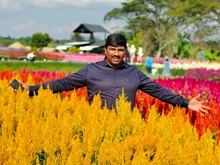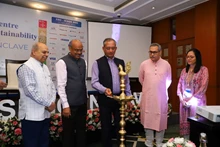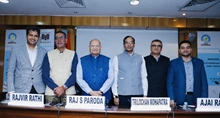
Growing rice in the traditional paddy field method takes a lot of water and area, and it is weather sensitive. Many individuals are therefore surprised to know that rice can be cultivated in Singapore. Furthermore, rice can be cultivated on a vertical farm mounted to the wall of Block 146 Tampines Avenue 5 without the usage of paddy fields.
Tampines GRC Members of Parliament attended the rice harvesting ceremony at the block on February 12.
At the ceremony, the MPs threshed the rice to separate the rice grains from the stalks, signifying a bountiful Year of the Tiger.
The wonder: Rice Variety grown in Vertical Farm
Temasek Rice is the rice variety cultivated in the vertical high-tech farm at Block 146.
They were grown in the greenhouse at Temasek Life Sciences Laboratory before being moved to the vertical farm in October 2021. Before planting rice in the block, the laboratory undertook trials and optimized technology for cultivating rice in an experimental vertical farming structure in Lim Chu Kang.
High Tech Vertical Farm
Netatech, a local company that specializes in employing micro-drip technology and rainwater gathering to decrease the resources required to cultivate food crops, manages the six-storey vertical farm at Block 146.
The farm crops rice on the top floor, while vegetables such as naibai and Hong Kong kai lan are grown on the bottom floor. Netatech employs precision drip irrigation to water the rice, which dramatically decreases the quantity of water required to cultivate rice.
Each batch of Temasek rice at Tampines' Block 146 vertical farm takes around four months to grow. Harvesting the vegetables usually takes two to four weeks.
While the rice is solely utilized for research and development reasons for the moment, the vegetables produced at Block 146 are distributed to residents who earn credits to redeem these free and fresh veggies after submitting their food waste to the Tampines Park black soldier fly facility.
Every month, 165kg of veggies are produced, enough to feed around 100 families of Four. The Tampines Block 146 initiative contributes to national efforts to achieve the "30-by-30" target, which aims to fulfill 30% of the population's nutritional needs through local food production by 2030.











